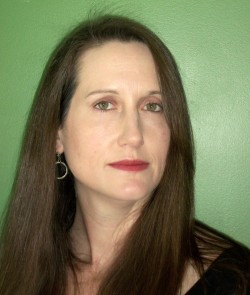
Wild Animals
Contributor’s Marginalia: Julianna Gray on “The Dead End” by Dan O’Brien
Children are savage. They aren’t innocent lambs, or miniature adults, and they sure as hell aren’t angels; they’re wild animals that their parents and teachers are trying desperately to tame. Like animals, they sometimes form packs, and haunt the cul-de-sacs and schoolyards with their howls. In my neighborhood, the kids have claimed a patch of woods beside the road where I must walk to work each day. There, they’ve erected a habitat: huts and teepees made of branches covered with sheets of bark shed from diseased elms or frost-cracked silver maples, ringed by logs on which they sit during their councils. The perimeter is fenced by sticks jabbed in the ground. I believe some of the ends are sharpened. Each day I check them nervously, expecting to see a mounted Barbie head or a row of inward-facing chipmunk skulls. If I pass when school is not in session, the children stare, hollow-eyed and silent.
And these children are loved. Their parents send them to Montessori and are raising them in two languages. The children in Dan O’Brien’s poem “The Dead End” are not loved, or don’t recognize their father’s treatment of them as such, and so their savagery is sharper, lonelier. “We hated,” the poem begins, and though the line does continue to a direct object, those first two words encapsulate the children’s daily lives. They hate, and swear, and burn, and run wild in the swamp, as dangerous to themselves and others as any of the boys in The Lord of the Flies. They breathe “emerald fumes” and wear the wet feathers of their down coats. Unlike my neighbors’ kids, these children don’t attempt to recreate a civilization in their wilderness. They don’t tame it; they make it wilder.
But even so, I pity these kids, because in the second stanza O’Brien shows why the kids are so eager to run, to curse and beat each other in that vacant lot. At home, there’s a father who doesn’t love them. This sounds like a cliché, I know, or a sentimental pitfall, but O’Brien pulls it off by treating this father’s cold neglect just as sparely as he does the kids’ violence. “If only/ they’d dredge the old brook,” the father complains, blaming the local government for his children’s condition. The trash-clotted brook used to run clear, he says, before the children were born. He can trace the source of the brook in his memory, but he can’t see that he is the source of his children’s misery.
As for the kids, they’re just trash. And that’s when my sympathies as a reader turn, and I ache for those dirty, violent, nasty children, one of whom will grow up to become the speaker of this beautifully crafted poem.
 Juliana Gray’s second collection,
Juliana Gray’s second collection,